The year 2024 will commemorate the 100th anniversary of the death of the phenomenal Gabriel Fauré. For Tristan Raës and me, who have been exploring the repertoire of French art songs for nearly 15 years, first meeting in the class of art songs and Lieder interpretation of Anne Le Bozec in Paris's Academy of Music, it was clear that paying a tribute to the "master of the Mélodies" was a necessity.
At first, it was not planned to do the complete songs, but only a selection. But after digging through the music of Fauré, it became impossible to make a choice. We wanted to make a proposition of our interpretation of classical melodies: such as "Chanson d'amour", or "Les berceaux" or "Après un rêve", but we also have always been interested in defending the most unknown songs of every composer (as we did for Félicien David, Migot, the Boulanger sisters...). Moving to his later works, such as "Le don silencieux", or "La sérénade du Bourgeois Gentilhomme", and even finding some obscure ones like "Hymne à Appolon", or the unpublished ones like, "Aurore", "Tristesse d'Olympio" was fascinating... So, in the end, we chose to do the lot.
Our approach to performing art songs is in the most intimate way, so we tried to figure out how to be as close as possible to the natural way of speaking the text, and to connect the lips of the singer to the ear of the listener: finding a way to transfer the sensuality of the text and the way Fauré put notes in it while trying to be as pure as possible in the way of telling the story.
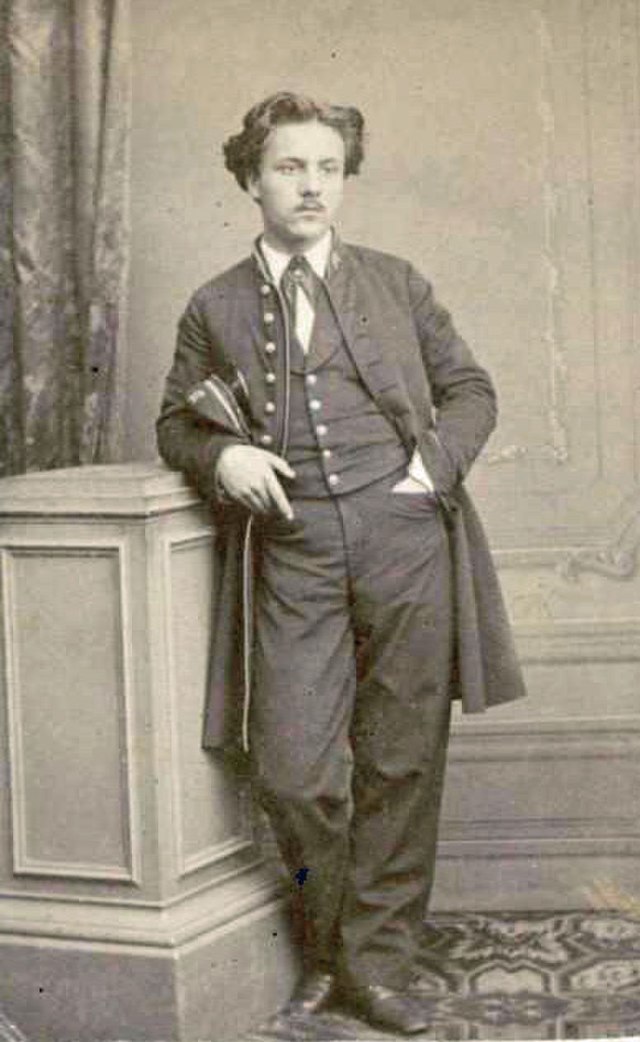 Performing the complete songs of Fauré (pictured left as a student in 1864) gives an intimate comprehension of his music. You can follow the evolution of his life, the questions he was asking and facing about the choice of poets, how music evolved throughout his life. Fauré wrote more than 100 melodies over almost seven decades of his life. He started when he was a student and his late "Horizons chimériques" were written only a few months before his death. Through his music, you see how his own language is changing from the Romance form of Massenet or Gounod, or his master Saint-Saens, to a much more modern music, heading through Impressionism like Debussy or Ravel (who was Fauré's pupil), towards the atonal music which will come right after him.
Performing the complete songs of Fauré (pictured left as a student in 1864) gives an intimate comprehension of his music. You can follow the evolution of his life, the questions he was asking and facing about the choice of poets, how music evolved throughout his life. Fauré wrote more than 100 melodies over almost seven decades of his life. He started when he was a student and his late "Horizons chimériques" were written only a few months before his death. Through his music, you see how his own language is changing from the Romance form of Massenet or Gounod, or his master Saint-Saens, to a much more modern music, heading through Impressionism like Debussy or Ravel (who was Fauré's pupil), towards the atonal music which will come right after him.
Doing the lot in a little amount of time is the most challenging thing. Recording a CD is always tiring, but here we have more than 100 songs and nearly four hours of music. Of course, we have done some songs from Fauré before, but we had to fill the gaps. We learnt more than half of these songs, especially for this recording. It is a long-time project: we first started to talk about it more than three years ago.
Taking on the complete songs of Fauré has never done before by a single singer. We wondered if it was a good idea to do it. Of course, some singers like Fischer-Dieskau did “integral” Schubert and Schumann and as time goes on, we begin to see some complete songs of Saint-Saens or Franck but not Fauré. Two reasons explain this: the first one is the gender of the poetry. For the two big cycles that Fauré wrote in the end of his life, La Chanson d'Eve and Le Jardin Clos, the texts are clearly for women. But we are in the 21st century and it is common that women perform cycles written for men – for instance, Debussy’s Ariettes oubliées is clearly a man's text, and Schumann’s Dichterliebe has been performed by women, so why not the opposite? As soon as you are not "performing" the text as a woman, but telling it as a narrator, it is possible to do it. The other question concerns the tonalities, the original keys in which the songs are set. It was challenging to figure that out because it is accepted that the early opus can freely be transposed, but going later in Fauré's life, the transpositions didn’t exist. Were we able to do it?
 It was important to fit the music to my voice. But we tried to be as faithful as possible to the tonality. Keeping the coherence between the cycles and trying not to change too much of the different colours of the tonalities.
It was important to fit the music to my voice. But we tried to be as faithful as possible to the tonality. Keeping the coherence between the cycles and trying not to change too much of the different colours of the tonalities.
Fauré was extremely sensitive to the quality of the poets he chose. At the beginning of his life, he takes on the "classical" ones, such as Victor Hugo, Théophile Gautier, like his masters, but he soon moves on to Armand Silvestre and of course Verlaine. Even later, he moves on to poets that are really not famous – even for French-speaking readers – like Van Lerberhe, and at the last, de La Ville de Mirmont. Fauré is one of the best writers for what we call prosody. He was even daring enough to change a couple of words in a poem for a more "musical" finish.
The music of Fauré evolved a lot throughout his life. Sometimes you don't know where he wants to go harmonically. But in the end, you always find closure. There will always be music before Fauré, and after Fauré, but it’s clear that he pushed the possibilities of tonal music to the limits. It is difficult to find another composer that explored so many harmonic possibilities without crossing the line to atonality. But he made it so that it is still refreshing music, and his melodies for the songs are always light and clear.
Cyrille Dubois and Tristan Raës perform "Aurore", poem by Armand Silvestre
I adore this repertoire. To me, it's sad that we have this image of "old-fashioned music”. The quality of Fauré's poems is exceptional, and it still resonates in our lives today. When you are talking about departure, such as in "Berceaux" or "Horizons chimériques", or despair in "Larme", grief in "Cimetière", spring in "May", everything you find in life is echoed in Fauré's music. I want to change the sensation we have when we listen to music, especially the modern way of singing (no rolled "r"s), but instead coming as close as possible to the way we now speak French. This keeps the simplicity of the melodic line and stops anything becoming too operatic. It is a challenge for us, and a lot of purists will say "this is not singing", but it is our version of this repertoire, and we only hope it will find an echo and touch the heart of listeners.
The quality of sound engineering is now fantastic, and we worked very hard to find the right sensibility and a sound recording that permitted me to use the whole range of my voice. I wanted to be extreme, to range from the slightest sigh or murmur to the most violent and vocally demanding moments. This allows us to immerse the listener in these songs, and to capture all the subtleties of Faure’s music. What I adore in voices in general is the fragility, the sensation that we are always on the edge to show that even in the perfection of the poetry and the music of Fauré, there is still humanity that touches people’s hearts.

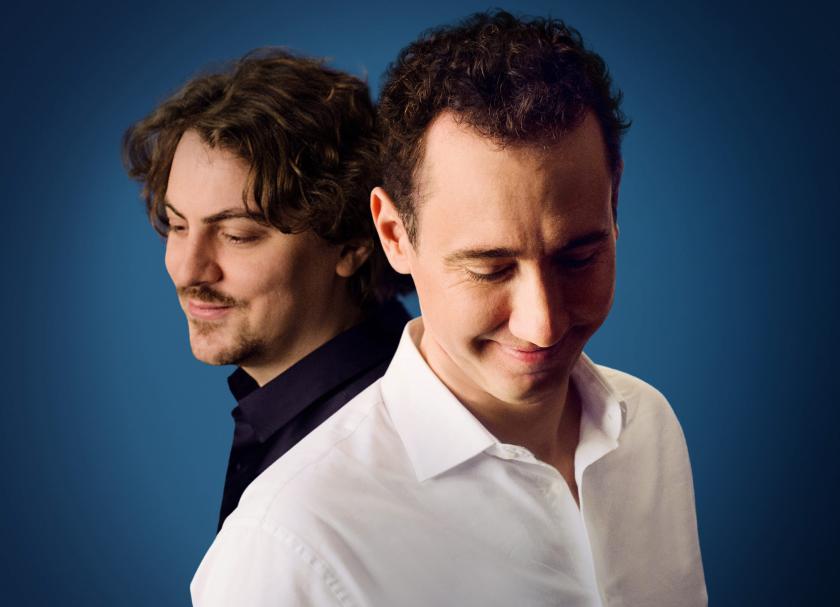






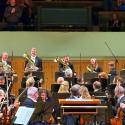
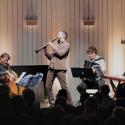


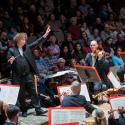
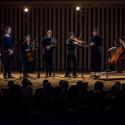
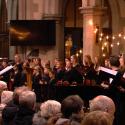
Add comment